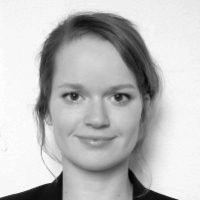As the original powder keg for the Arab uprisings, Tunisia and the Maghreb region have seen substantial political change in recent years. Now approaching another anniversary of the so-called Arab Spring, YouGov collaborated in July 2013 with two Cambridge students – myself and Zoe Petkanas, a PhD candidate in International Relations – to produce a survey of public opinion in the Maghreb, including attitudes to political reform, equality and the role of religion in politics.
Through the Wilberforce Society, we were invited to submit an initial questionnaire, which was developed and fielded in collaboration with YouGov researchers in their London and the Middle East offices through the YouGov-Cambridge Programme.
First a quick note on methodology: we surveyed a pan-regional sample of 1228 respondents including in Morocco (n=503), Algeria (n=520) and Tunisia (n=205). These results are not nationally or regionally representative and the sample included several biases. All respondents had pre-registered polling profiles with YouGov and our respondents were not evenly distributed among gender, income, educational, or age groups. So it happened that our polling sample included 940 men and only 288 women, and 599 people aged between 25 and 34, but only 118 people aged over 45.
Notwithstanding, survey results indicate some clear trends in political and economic attitudes across the region: large numbers said their country had become more free since the beginning of the uprisings, including 67% overall and large majorities in each country. Similar majorities agreed they can now affect politics through election; and the justice system treats everyone in a similar way. 62% overall thought their country was generally ‘moving in the right direction’ (including 60% in Algeria, 67% in Morocco and 56% in Tunisia) but large numbers were notably dissatisfied with the economy, along with the situation for prices and jobs in their country, and were sceptical that any of this would improve much over the next 12 months.
In short, these results reaffirmed a familiar ‘post-Spring’ narrative of the region as gradually democratising but economically struggling.
Beyond top-line attitudes to political and economic progress, a major focus for this study lay in differences of gender attitudes.
Interestingly, women were often less downbeat economically than men. 25% of female respondents described their household in a ‘good’ financial situation versus 9% of males.
Women were also more optimistic economically about the next twelve months, with 42% expecting an improvement in household finances compared with 32% of males, and 28% predicting a worsening economy, compared with 35% of males.
A higher percentage of males (31%) than females (23%) believed their country was moving in the ‘wrong’ direction, while higher proportions of women felt optimistic about their general ‘life situation: 46% of females said life would improve in the next twelve months, compared with 38% of males.
Perhaps unsurprisingly, results portrayed significant gender gaps across attitudes to gender questions in education, politics and work.
In education, 71% of women said it was morally acceptable for a woman to delay marriage to pursue an education, compared roughly half of men (52%). 42% of females said a woman prioritising her career over starting a family was morally acceptable, compared with only 24% of men.
While roughly a third of male respondents agreed that university education is more important for a boy than a girl, only 14% of females agreed (only half of men disagreed with the statement versus 77% of females).
In politics, attitudes to gender roles still differed between the respondents’ gender, although to a smaller extent. 75% of males agreed that men make better political leaders than women, compared with 59% of women, still a high figure. While a 57% majority of men were against the idea of a woman becoming national leader versus 32% in support, female respondents were divided, with 44% both for and against respectively.
Our respondents also reflected a noticeable gap in attitudes to political Islam: while 61% of men said Islam should have more influence in the politics of their country, a smaller 51% of women said the same.
Female respondents were similarly divided over the question of employment opportunities during hard times. 69% of males agreed that employers should give priority to men finding jobs than women when jobs are scarce, versus 16% of males who disagreed. By comparison, 41% of women agreed with the statement versus 43% who disagreed.
According to these results, public opinion in the Maghreb suggests several distinctions in gender attitudes: a less downbeat economic attitude among women; a female scepticism towards freedoms supposedly granted under new or reformed governments, a female hesitancy compared with men in advocating more religious politics, and some clearly articulated desires among women for more gender equality – at least in work and education, if not in front line politics.






